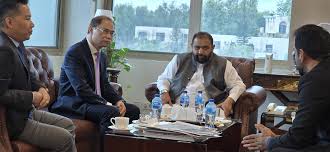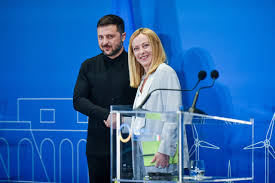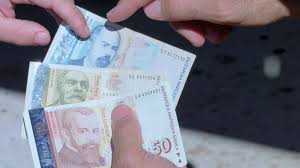Vietnam proposes cultural collaboration with Pakistan to promote Buddhist Heritage

Celina Ali
Islamabad: In a significant step towards deepening bilateral ties, Vietnam has proposed a comprehensive cultural partnership with Pakistan focused on promoting Buddhist heritage and boosting faith-based tourism.
The proposal was presented by Mr. Quang, Second Secretary and Head of Economic and Cultural Diplomacy at the Embassy of Vietnam in Pakistan, during a meeting with the Federal Minister for National Heritage and Culture, Mr. Aurangzeb Khan Khichi.
Mr. Quang highlighted Vietnam’s rich Buddhist history and centuries-old civilization, expressing a desire to work closely with Pakistan to develop joint heritage initiatives. “A journey of a thousand miles begins with a single step,” he remarked, emphasizing the importance of today’s dialogue as the beginning of long-term cooperation.
Among the key suggestions was the signing of a Memorandum of Understanding (MoU) between Pakistan’s Taxila Museum and Vietnam’s leading cultural institutions, such as the Vietnam National Museum of History and the Museum of Vietnamese History in Ho Chi Minh City.
This would pave the way for joint exhibitions like “Buddhist Art Along the Silk Road,” which would showcase Gandharan masterpieces alongside Vietnamese artifacts.
The Vietnamese side also proposed launching exchange programs for curators, archaeologists, and heritage professionals, promoting collaborative research on historical ties between Gandhara and ancient Vietnam.
Joint development of specialized Buddhist heritage tours was discussed, connecting Pakistan’s UNESCO sites with Vietnam’s renowned Buddhist landmarks.
Further areas of collaboration include organizing cultural festivals, digitizing cultural assets, and co-publishing research to globally promote shared Buddhist heritage.
Mr. Quang emphasized that the partnership would not only enrich both societies but also open new economic and educational opportunities for artisans, local communities, and youth. “If you want to go fast, go alone; if you want to go far, go together,” he concluded, urging both nations to formalize the proposed MoU swiftly.
Welcoming the initiative, Minister Khichi assured Vietnam of Pakistan’s readiness to collaborate. “Your proposals are very important, and we will consider them on a priority basis,” he said, noting that Pakistan has already signed cultural agreements with over 80 countries and is eager to move forward with Vietnam.
The minister also invited the Vietnamese Embassy to participate in Lok Virsa, Pakistan’s fourth-largest cultural event, by showcasing Vietnamese culture, food, and traditions. He proposed a collaborative Gandhara Exhibition with the Vietnamese Embassy to further deepen cultural links.
Secretary of the National Heritage and Culture Division, Asad Rehman Gillani, shed light on Pakistan’s extensive cultural depth, referencing the ancient civilizations of Mohenjo-Daro, Harappa, and Gandhara. He highlighted the importance of Buddhist heritage in Pakistan, particularly the historic sites of Takht-i-Bahi and Taxila.
The discussion also focused on expanding tourism. Minister Khichi highlighted Pakistan’s appeal for adventure tourism and invited Vietnamese mountaineers to explore the country’s mountain ranges, including K2. Mr. Quang praised the natural beauty of Pakistan and recognized K2’s global status among climbers, while also commenting on the strong and resilient character of the Pakistani people.
To implement the proposed initiatives, both sides agreed to appoint a focal person and begin follow-up meetings starting next week. The potential launch of direct flights from Vietnam to Islamabad was also discussed as a means to boost tourism and cultural exchanges.
Usman Shah, CEO of NIFTYSPHERE Institute, was also present at the meeting. He underscored the tourism potential of Shah Allah Ditta caves, suggesting they could attract thousands of Buddhist tourists and significantly contribute to Pakistan’s cultural economy.
The meeting concluded with a shared commitment to advancing cultural diplomacy and building a long-lasting bridge between South and Southeast Asia through shared heritage and people-to-people connections.





